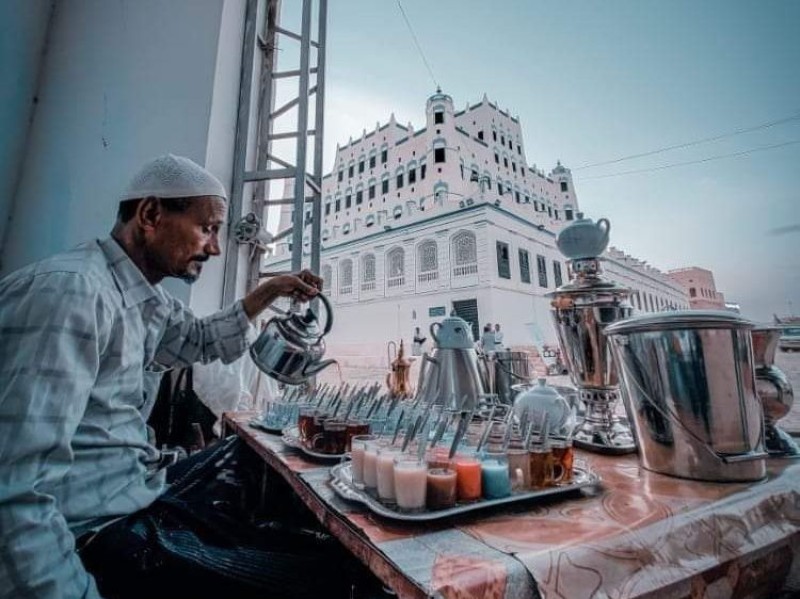New fuel crisis deepens suffering for hungry Yemenis


Fuel shortages in Yemen are threatening thousands of lives. Drivers are queuing for two to three days to fill up, and the knock-on effects are being felt throughout the country, with food, water and other necessities in short supply. We call on the government of Yemen to end restrictions on the import of fuel.
Struggling to survive
Malayeen Haza’a, 40, used to live in a port city in Taiz, a governorate in south-west Yemen. She used to enjoy a stable life with her husband and six children. But when the war escalated in 2015, she struggled to survive.
“When the war escalated, fuel quickly disappeared from the market and prices started to soar in a dramatic way. But the impact on us was not severe at first, as my husband used to work as an electrical engineer and was able to provide our family with a decent standard of living,” she says.
However, as the war progressed, the income that Malayeen’s husband, Mahmoud, could bring in was hardly enough to cover basic commodities. Prices more than doubled.
Killed by an airstrike
“One terrible day in July 2015, an airstrike targeted the residential city where we lived and more than 100 people were killed, and others were badly injured,” recalls Malayeen. “My husband was one of those who was injured.
“People fled the area towards safer governorates, and I took my husband to receive treatment in Sana’a. Unfortunately, after eight months of suffering he died.”
Starting a new life
Malayeen had been staying in her brother’s house, but after her husband’s death she decided to rent a house and start a new life in Sana’a’s Bait Bous neighbourhood.
“Some neighbours helped me with second-hand furniture, but it was difficult for me to buy food with the rising prices, so I decided to work,” says Malayeen.
She learnt how to make pastries, samosas and sweets. She bought an oven and started to cook and sell food to her neighbours to cover the basics for her children.
Unable to afford cooking gas
“The income I made was hardly enough to buy food and other basic commodities, but we just about managed to survive,” she explains. “But with a new fuel crisis since late September, nowadays I can’t work at all. Cooking gas has disappeared from the markets and I can’t afford the prices on the black market.
“The prices of flour, sugar, cooking oil have all increased over the last few weeks, and the main reason is that we are experiencing a fuel shortage. Life is worsening, and I can’t afford to work or buy food.”
Malayeen used to have customers in neighbourhoods that were a long distance away, but she was forced to stop selling to them as it became difficult to pay for fuel to transport the sweets. Nowadays she can’t afford to buy diesel or gas to cook with because prices have risen exorbitantly.
A three-day queue for fuel
In Sana’a, the price of fuel for Yemeni citizens has risen to YER 800/litre compared to YER 365/litre on the official market in Sana’a, and the price of diesel to YER 1,000/litre compared to YER 375/litre on the official market.
On the black market, fuel prices have soared even further, reaching over YER 20,000/20 litres, almost three times the official price. Fuel stations are completely closed or have limited operating hours, creating queues several kilometres long and wait times of two to three days.
The impact of this increase is being felt by vulnerable Yemenis already suffering from prolonged conflict. The UN estimates that 10 million hungry Yemenis who are already one step away from famine will soon not be able to buy food in the markets.
Government restrictions causing shortages
Since mid-September 2019, northern Yemen has been experiencing acute fuel and gas shortages as a result of new regulations on commercial fuel imports imposed by the government of Yemen.
This is leading to delays in approving ships to offload fuel and gas at the Red Sea port of Hodeidah. Yemen imports the vast majority – around 90 per cent – of its food, fuel and commercial supplies, and these delays are making a bad humanitarian situation even worse.
Service cuts threaten thousands of lives
Fuel is needed not just for cars but also for water pumps, hospital generators and to transport goods around the country. In some parts of the country, the water supply in urban centres has been forced to stop completely for up to two weeks. Poor sanitation and a lack of safe water is increasing the risk of deadly diseases such as cholera, which has already claimed close to 1,000 lives this year.
The impact on hundreds of thousands of families is already being felt. People barely surviving now will find it much harder to do so unless adequate levels of commercial imports – including fuel – are able to enter the country continuously through all ports.
Fuel restrictions must be lifted
The Norwegian Refugee Council (NRC) is extremely concerned about the impact of the fuel crisis on Yemeni civilians. Humanitarian operations are also being affected by the fuel shortages. Aid organisations are being prevented from providing life-saving assistance, with support for malnourished children suspended, and food and water distributions reduced.
We are calling on the government of Yemen to remove all restrictions affecting the import of commercial fuel.
We are also calling for the lifting of restrictions preventing food, fuel and other aid reaching all parts of the country to ease the humanitarian situation, including ensuring all ports remain open and functional. Any prolonged fuel shortages will lead to a catastrophe on top of a catastrophe.
“The mother of all suffering”
Malayeen concludes: “Beautiful days have gone and the fuel crisis is causing the mother of all suffering. I hope that war stops, and I can return home and resume my normal life.
“We lost our main breadwinner but if prices go back to normal levels, as they were before the war, we can overcome the current suffering.”

Sana’a – The General Authority for Antiquities and Museums, operating under the control of the Houthi militia in the occupied capital S…

Hadramout — UNESCO has officially inscribed Al-Dan Hadrami, a traditional poetic and musical art form from Yemen’s Hadramawt region, on…

NewYourk  -- The renowned auction house Sotheby’s has revealed plans to present one of the rarest surviving Yemenite Torah scrolls in it…